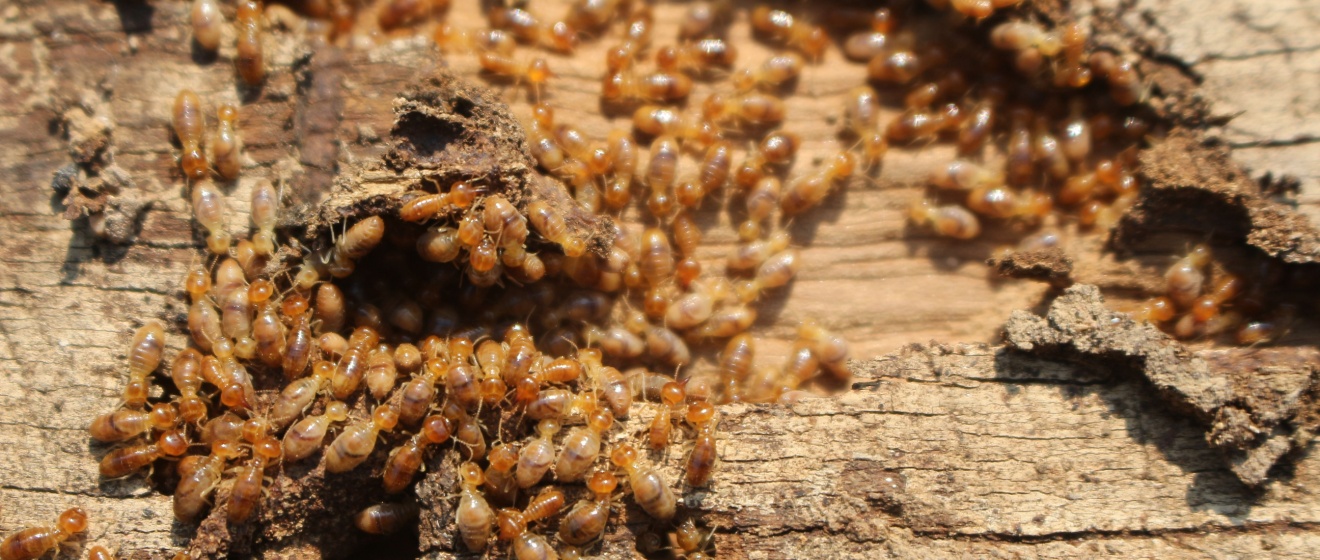Chapel Hill homeowners face a silent but persistent threat that can literally eat away at their most valuable investment: termites. These tiny, relentless pests cause more damage to homes in North Carolina than fires, storms, and earthquakes combined. At Scott’s Turf and Pest Services, we’ve seen firsthand how termite damage impacts Chapel Hill properties financially and structurally. Understanding the true cost of termite damage can help homeowners make informed decisions about protecting their properties.
The Financial Impact of Termite Damage in Chapel Hill
Termite activity represents a major financial burden, and the expenses extend well beyond the initial repairs.
Direct Repair Costs
When termites attack a Chapel Hill home, the immediate repair costs can be staggering:
- Average repair costs: Chapel Hill homeowners with termite infestations often spend thousands of dollars to repair termite damage
- Severe cases: In advanced infestations, repairs can exceed $20,000, particularly in older homes near wooded areas like those in the Lake Forest or Gimghoul neighborhoods
- Partial replacements: Replacing damaged floor joists, wall studs, or support beams typically costs $100-$300 per linear foot when factoring in both materials and labor
- Extensive renovations: Major structural damage can necessitate temporary relocation during repairs, adding lodging expenses to already substantial repair costs
These figures represent just the direct repair expenses and don’t account for secondary costs or diminished property value.
Hidden and Secondary Costs
Beyond immediate repairs, termite damage creates additional financial burdens:
- Increased energy costs: Damaged insulation and compromised structural integrity can increase heating and cooling expenses
- Property value reduction: Homes with a history of termite damage often sell for 3-5% less than comparable properties
- Disclosure requirements: North Carolina law requires sellers to disclose termite history, affecting marketability
- Financing complications: Lenders may require additional inspections and documentation for properties with previous termite issues
- Insurance limitations: Most homeowners insurance policies specifically exclude termite damage, leaving homeowners without coverage
Factors Increasing Termite Risk in Chapel Hill
Chapel Hill’s specific environmental and architectural characteristics create heightened termite vulnerability:
Climate and Soil Conditions
- Humid subtropical climate: Chapel Hill’s warm, humid conditions create ideal termite habitats
- Year-round activity: Unlike colder regions, our local termites remain active nearly year-round
- Sandy clay soils: The soil composition throughout Chapel Hill facilitates termite movement and colony establishment
Property Characteristics
- Historic homes: Chapel Hill’s numerous older homes often contain extensive wood components and may lack modern termite protection
- Wooded lots: Many properties in areas like Lake Hogan Farms and Carrboro border wooded areas harboring natural termite colonies
- Multiple entry points: The prevalence of crawl spaces, wooden decks, and foundation plantings creates numerous termite access routes
These factors combine to make Chapel Hill properties particularly susceptible to termite activity and subsequent damage.
The Economics of Termite Prevention
When compared to the substantial costs of termite damage repair, preventative measures represent a remarkably cost-effective investment.
Effective Prevention Strategies for Chapel Hill Homes
Based on local conditions and termite behavior patterns, these prevention approaches provide the most effective protection for Chapel Hill properties:
Professional Inspection and Monitoring
Regular professional inspections provide the foundation for effective prevention:
- Annual professional inspections: Trained technicians can identify early warning signs before damage occurs
- Targeted monitoring: Placement of monitoring stations around high-risk areas of your property
- Documentation: Creating a verified history of termite protection increases property value and marketability
Moisture Management
Controlling moisture reduces termite attraction and activity:
- Proper drainage: Ensuring gutters, downspouts, and landscape grading direct water away from foundations
- Crawl space ventilation: Maintaining appropriate air circulation to prevent moisture accumulation
- Dehumidification: Installing vapor barriers and dehumidifiers in enclosed crawl spaces
- Leak repair: Promptly addressing plumbing and roof leaks that create favorable termite conditions
These moisture control measures are particularly important in Chapel Hill’s humid climate.
Structural Modifications
Physical barriers and modifications can significantly reduce termite entry risk:
- Wood-soil contact elimination: Maintaining at least 6 inches between wood elements and soil
- Foundation repairs: Sealing cracks and openings in foundations that provide termite access
- Mulch management: Keeping organic mulch at least 6-12 inches from foundation walls
- Proper ventilation: Ensuring adequate airflow in attics, crawl spaces, and other enclosed areas
Professional Assistance
Don’t wait until costly termite damage affects your Chapel Hill home. Contact Scott’s Turf and Pest Services today for a comprehensive termite inspection and prevention plan. Our experienced team provides the local expertise and effective solutions to protect your investment from termite damage.

